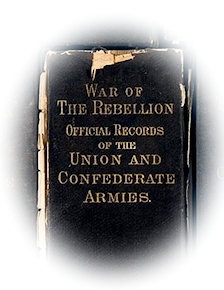HEADQUARTERS OF THE ARMY,
Washington, December 31, 1860.
Colonel DIMICK, or commanding officer, Fort Monroe:
SIR: Prepare and put on board of the sloop-of-war Brooklyn, as soon as the latter can receive them, four companies, making at least two hundred men, destined to re-enforce Fort Sumter. Embark with said companies twenty-five spare stands of arms, complete, and subsistence for the entire detachment for ninety days, or as near that amount as your supplies may furnish. Communicate at once with the commander of the war steamer, learn the earliest moment at which he can receive the troops on board, and do not fail to have them there by that time.
W. SCOTT.
Manage everything as secretly and confidentially as possible. Look to this.
______
HEADQUARTERS OF THE ARMY,
Washington, December 31, 1860.
To the PRESIDENT:
Lieutenant-General Scott again begs leave to trespass for a moment on the indulgence of the President of the United States, particularly as he learns by rumor that there is no head to the War Department. Such are the necessities of the service that it is hoped the vacancy in question may be speedily filled, and, incidentally, that the new Secretary, if ad interim, may not be a junior officer of the Army, as it would wound the pride of any senior to serve under such Secretary.
Lieutenant-General Scott deems it to be his duty to lay the accompanying letter [not found] before the President. The writer is a distinguished graduate of the Military Academy, and an eminent lawyer of the New York bar. Major-General Sandford, mentioned by him, is an officer and citizen of great merit and discretion, commanding the City Division of Volunteers.
General Scott does not recommend the acceptance of Mr. Hamilton’s proposition, as we have disposable regulars enough for that single purpose; but that we already require many and large detachments for the protection of our coast defenses farther south is becoming daily more and more evident.
In reference to General Scott’s note of yesterday to the President, he respectfully adds: Of course, the War Department and General Scott cannot communicate anything to Major Anderson, or receive by mail or telegraphic wires, anything from him (who must be regarded as in a state of siege), except by permission of the authorities in Charleston; and it is just possible in his state of isolation a system of forged telegrams from this place may be played off so successfully as to betray him into some false movement.
Most respectfully submitted to the President of the United States.
WINFIELD SCOTT.
P. S.—As a sequence to the foregoing, it is respectfully suggested that there seems to be no other way of freely communicating with Major Anderson than by water, say by a revenue cutter running regularly between Wilmington, N. C., and Fort Sumter.
______
FORT SUMTER, S.C., December 31, 1860.
(Received A. G. O., January 5, 1861.)
Col. S. COOPER, Adjutant General:
COLONEL: I have the honor to report that the South Carolinians show great activity in the harbor to-day. Several steamers have been running to and fro, and this afternoon about 80 soldiers, with wheelbarrows, barrels, &c., and some draught horses, were landed on Morris Island. They are evidently constructing a battery or batteries there. The lights in the harbor were put out last night, and ours is the only light-house of this harbor which exhibits light to-night. I am at a loss what this means, unless it be that some armed vessel is expected here. The more I reflect upon the matter the stronger are my convictions that I was right in coming here. Whilst we were at Fort Moultrie our safety depended on their forbearance. A false telegram might, any night, have been seized upon as an excuse for taking this place, and then we would have been in their power, And even if there had been an understanding between the two Governments that I was not to be interfered with until the termination of the mission to Washington, the fact of the governor’s having ordered armed steamers to keep watch over me would have absolved our Government from the obligation to remain quiescent. It is certain, too, that the moment a telegram was received announcing the failure of the mission, attack would have been made and my command sacrificed, for there can be no surrender with these men, if attacked, without a serious fight. Thank God, we are now where the Government may send us additional troops at its leisure. To be sure, the uncivil and uncourteous action of the governor in preventing us from purchasing anything in the city will annoy and inconvenience us somewhat; still, we are safe. I find that in consequence of a failure (accidental) to comply with my instructions, there is only a small supply of soap and candles, and also of coal. Still, we can cheerfully put up with the inconvenience of doing without them, for the satisfaction we feel in the knowledge that we can command this harbor as long as our Government wishes to keep it.
I am, colonel, respectfully, your obedient servant,
ROBERT ANDERSON,
Major, First Artillery, Commanding.
